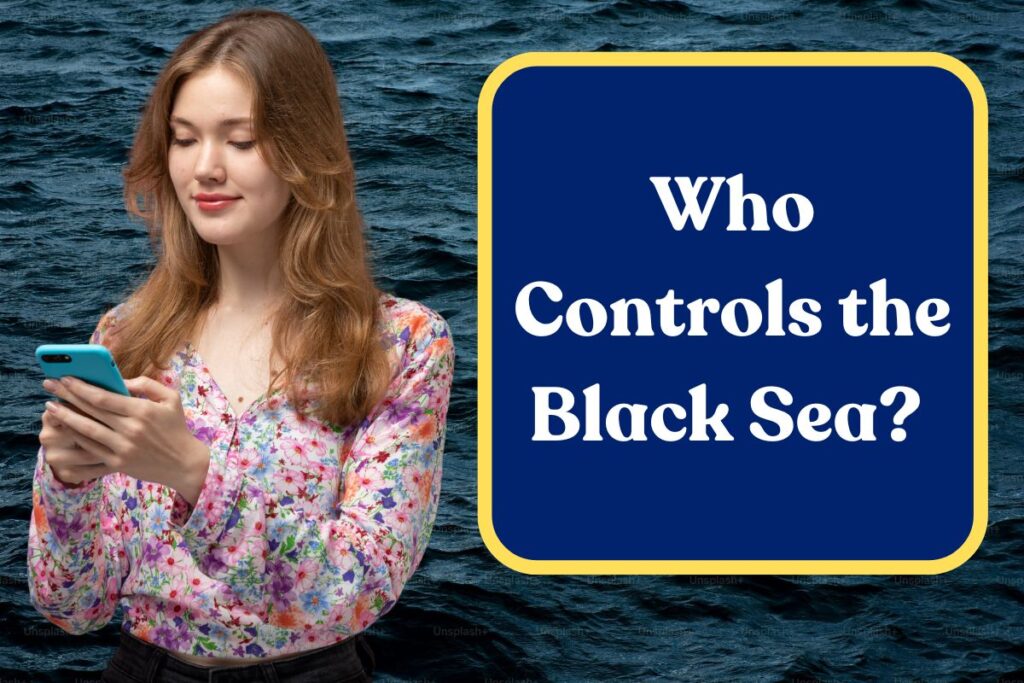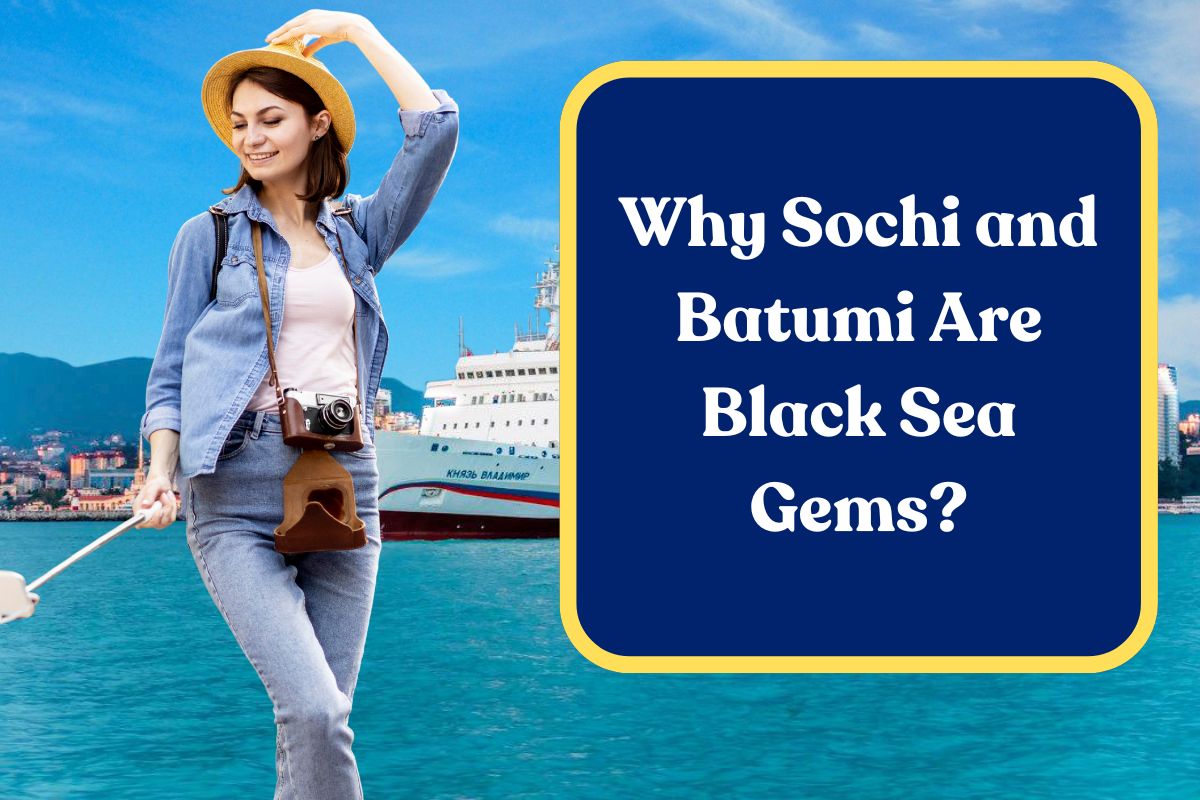The Black Sea has been holding up many countries in terms of supplying various natural resources. Though a total of six countries work in alliance for the Black Sea, the major roles are expected to be handled by Russia and Turkey. Russia has a strong naval presence, while the latter is a NATO member.

Who Controls the Black Sea?
This is not a easy to answer question. Black sea shares coast with many countries. The collaborative framework is focused on improving the water pollution from the Sea. The officials create various campaigns to create awareness among the people. And these had a significant impact on the quality of the sea.
Considering the present situation, there is a political war has started among the countries which are involved in the management of the Black Sea. The readers might be getting curious to know the answer to who is controlling the operability of the Black Sea, the authorities, and the countries involved. Thus, every detail is mentioned in this article to guide the associated stakeholders of the Black Sea.

Exercising Control Over the Black Sea – Overview
| Article On | Who Controls the Black Sea? |
| Category | Geopolitical Analysis and Contemporary News |
| Responsible Department | Black Sea Commission |
| Countries Involved | Romania, Turkey, Georgia, the Russian Federation, Ukraine, and Bulgaria |
| Primary Controlling Mechanism | Collaborative framework of countries and a reliable network of international partners and organizations |
Latest News of the Black Sea
The intergovernmental body, which is the Black Sea Commission, is responsible for the environmental and sustainable development of the Black Sea. A few months prior, the officials had detected alarming levels of pollution within the marine environment. If it had been left unchecked, it might have caused harm to both human populations and aquatic ecosystems.
However, the condition of the Black Sea does not determine the controlling power. The fight to win over the command of the Black Sea continues, and this time it is a serious concern.


Control Dynamics of the Black Sea: Balance of Power
At present, the control is distributed unevenly among the six countries, which is causing chaos. The major challenge was faced during the Russia-Ukraine conflict. The initial duration was critical as the processes were not under the control of a responsible authority. The Russian Federation has a naval dominance that impacts the Black Sea management in a positive way.
This control was given to the Russian Federation because of its strong military force actions for the strategic positioning of the Black Sea. Be it trade routes, management of maritime activities, trading, fishing issues, or any other, the forces are readily available.

They plan out effectively to solve the concerns. This magnificent representation of power by Russia was carefully observed by the International observers and other Black Sea states. However, the ongoing discussion continues to modify this dynamic in a way that some other country gets hold of the strategic alignments of the Black Sea.
Are There Any Special Rights for Turkey and Russia?
These countries are preferred by the International observers because of their rich history of managing water bodies. Their interests in geographical and sustainable development have prompted the international authorities to provide rights. We will be discussing the rights of each of these separately.

Russia: The Russian Empire and later the army always focused on the welfare of the Black Sea. The officials continued to create productive strategies to keep the water and the nearby environment clean. It can be said that Russia dominated the sea for years, and not for a single day. These actions have led to the dominance of national security and economic prosperity.
Turkey: Being a successor of the Ottoman Empire, Turkey has an ancient connection with the Black Sea. For years, the emperors have controlled the major activities of the Black Sea. Thus, it can be concluded that Turkey has a historical significance of balancing the power regarding the Black Sea. In terms of International law, Turkey is known to be the gatekeeper of the Black Sea.
Impact on International Authorities: This historical precedent of both countries is not a part of imagination but a living legacy that is important for refining policy and ensuring the security of the Black Sea. The sustainable development and geographical stability of these regions have influenced the international authorities.
The primary reason to consider these countries is to consider a balanced management approach and consider the geopolitical future of the sea. Authorities believe that the consistent efforts of Turkey and Russia are effective in shaping the economic flow as well as the security architecture.
What is Turkey’s Geopolitical Strategy to get Control of the Black Sea?
Turkey has a strong geopolitical presence and is a key player in Black Sea security. The recent collaboration with the North Atlantic Treaty Organization (including Romania and Bulgaria) plays an integral role in securing and strategic planning of the management of the Black Sea.
The officials continue to manage the water resources and other aspects to protect the sea. The country is known as the gatekeeper as it used to regulate the passage of warships. Turkey has a strong political influence because of its brilliant strategy to shape naval dynamics and also in maintaining equilibrium.
However, its alliance with NATO gives it the power and freedom of navigation to balance the water body. This has not only strengthened the supremacy but has fostered trading to environmental protection activities. The consistent efforts of Turkey might create a strong presence among the International authorities to gain complete dominance.
Which Countries Controls the Black Sea?
Currently, the operational dynamics of the Black Sea are controlled by the balanced power of all countries. These include the Nations: Romania, Turkey, Georgia, the Russian Federation, Ukraine, and Bulgaria. As of now, no single nation holds absolute dominance because of various dependencies. These include economic, military, trading, and more. Moreover, this balance is fragile and underlies tensions.
The situation fluctuated during the Russia-Ukraine war. The impact of the Russian Federation is so influential that the actions of other regions seem blurred. Since all the countries are supporting the management of the Black Sea, the decision is yet to be made by the International authorities to provide control to a particular country. Furthermore, this decision has to be made immediately, considering the political tensions among the countries.
| Homepage | blacksea-commission.org |








